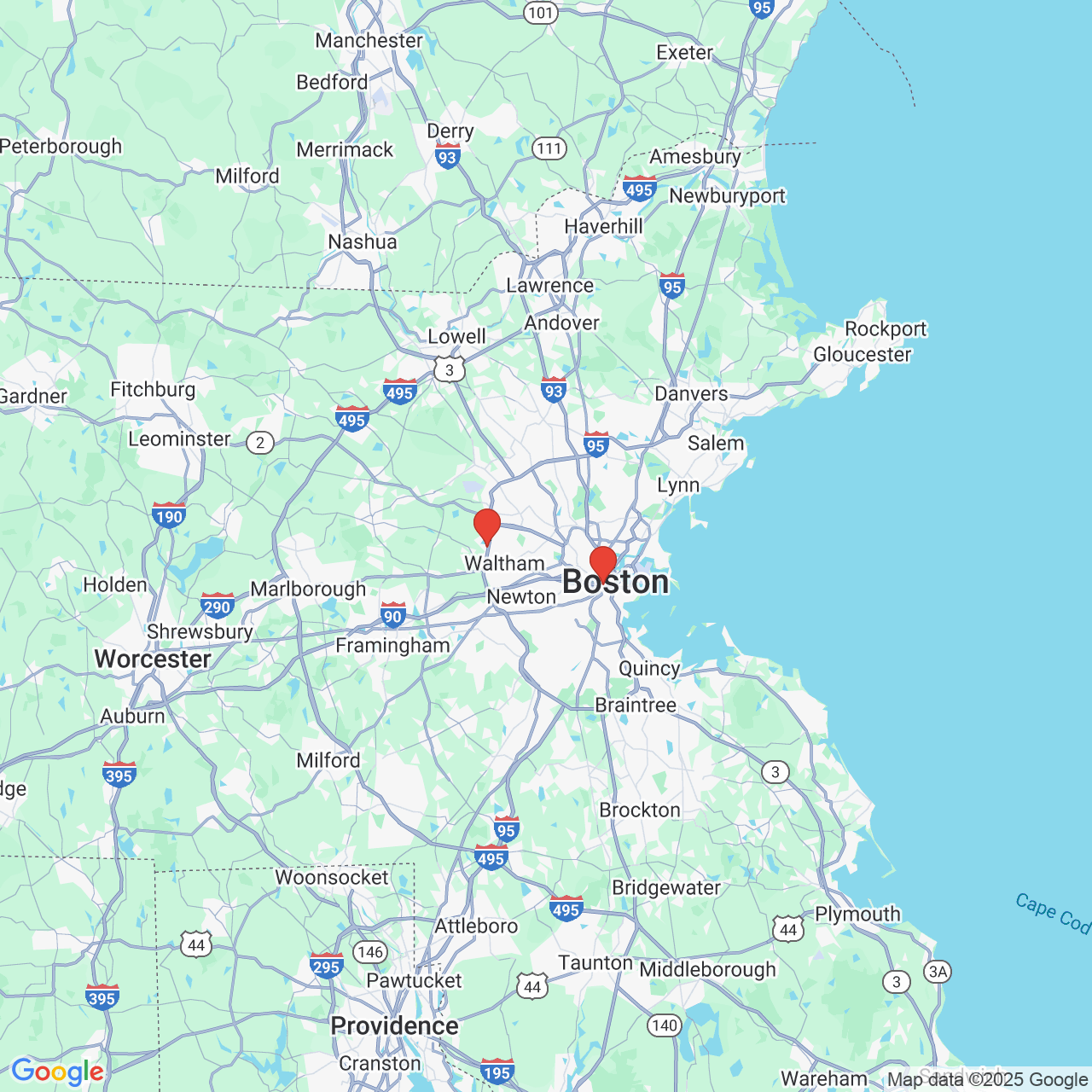Description
Dr. Gerald Maher is Dental Associates of New England's TMJ and facial pain specialist. If you suffer from pain due to temporomandibular joint disorder, it is of utmost importance that you visit a specialist like Dr. Maher who has seen many cases and can determine the best care plan for you. High-tech equipment at our Boston office allows Dr. Maher to evaluate each patient's case and determine the root of his or her problem.
View transcript
My name's Gerald Maher; I'm a TMJ Facial Pain Specialist for Dental
Associates in New England. I have been the TMJ specialist at Dental
Associates for the past 14 years. I originally started my training in
temporomandibular joint dysfunction in 1976. I was the first doctor in New
England to pass the fellowship exam of the American Academy of Facial Pain
in 1986, and have specialized in facial pain, headaches, and TMJ since
1976.
Typical signs and symptoms of temporomandibular joint problems are the
following: Headaches, facial pain, tightness in your muscles. Those would
all be symptoms; they're subjective. Various signs of TMJ problems would be
clicking/popping in your jaw, limited opening in your jaw. If you have
clicking and popping in your jaw, there is a disk problem in your jaw
joint. When you're thinking about TMJ problems, think of a joint like your
knee, your elbow, your wrist. If you have pain in your wrist, you know
there's something wrong with the wrist joint, if you have pain in the jaw
or an earache, because one of the nerves that innovates the ear also
innovates the temporomandibular joint, then in all probability, there is
swelling in the temporomandibular joint. If you put your finger through
your external auditory meatus in your ear, bring your teeth together and
you can feel a clicking with your finger, you can feel the [inaudible:
01:43] bounce off your finger, in all probability, you have a
temporomandibular joint problem.
When we look at diagnoses of temporomandibular joint problem, it has
various causes for it. The first cause would be genetics. If in fact your
mom or your dad has a temporomandibular joint problem, in all probability,
this has been passed on genetically to the child, to the sibling. The
second reason for a temporomandibular joint problem would be instability in
the dentition in your teeth. You need to have a full complement of teeth,
you need these teeth to be correctly positioned in the jaw, and you need
them not worn down. Many TM joint patients grind their teeth, especially at
night. This wears down the dentition, flattens out the dentition, and hurts
the temporomandibular joint. Another reason for TMJ problems is accidents,
car accidents, whiplash, football injuries, blows to the head and neck;
this will cause a disruption in the temporomandibular joint.
The big key to understand is the TMJ is a joint, just like any other joint
in your body. You can get swelling in your ankle; you can get swelling in
your temporomandibular joint. You can roll your ankle; you can dislocate
your temporomandibular joint. If in fact your ankle is unstable, you need
to wear a brace on it. If your temporomandibular joint is unstable, you
need to wear a brace on your teeth to stabilize the joint. The device that
I use to stabilize the temporomandibular joint is this. This is called a
Maher Guard, and this is a patented process that I designed with the New
England Patriots. What we designed this for is to stabilize the
temporomandibular joint, and we found that we were radically cutting down
on concussions because we were putting the jaw in the correct position with
the temporomandibular joint, and any blow you would receive to the front of
the face would be dissipated by this orthotic.
I've done research with the Hershey Bears hockey team. 2008, they had 48
concussions. In 2009 and 2010, the entire team was fitted with this
orthotic; they had a grand total of 8 concussions in the 2 years. That's a
reduction of 86% on concussions by just wearing this device, eliminating
the glass jaw in the patient.
There are various treatments available to temporomandibular joint
dysfunction. The big key on the treatment is to make the correct diagnosis.
If in fact you have someone with a muscular problem, you would want to
refer them for chiropractic care, physical therapy heat, and probably a
muscle relaxer. If in fact you have someone who has an internal joint
problem, then you want to fit them with an orthotic or a mouth device that
stabilizes the temporomandibular joint.




























